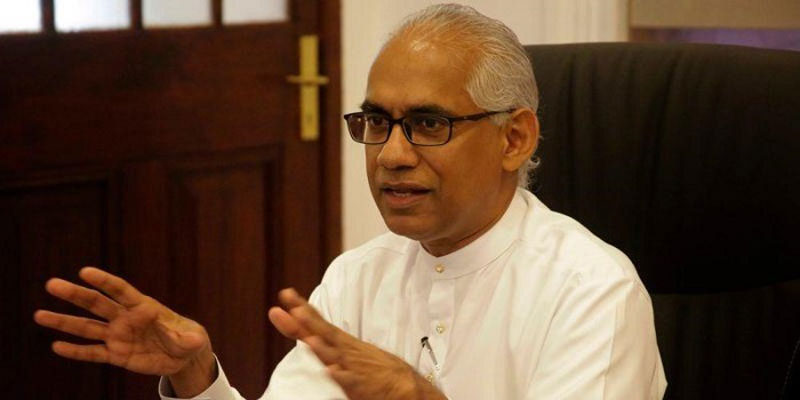Saturday Feb 21, 2026
Saturday Feb 21, 2026
Monday, 9 October 2023 00:10 - - {{hitsCtrl.values.hits}}

MP Eran Wickramaratne
Samagi Jana Balawegaya (SJB) MP Eran Wickramaratne slammed the Government over the weekend for not devising any solution to protect the country’s health sector, potentially jeopardising the citizens’ right to life.
“Even as the health sector grapples with the growing brain drain, with more and more professionals leaving the country, the Government has failed to put forth a viable solution. This is a consequence of the Government’s flawed decision-making, which has resulted in a significant loss of human capital from the country,” he said in parliament.
During his speech, Eran highlighted two crucial unique selling points of the country, its strategic location and its human capital.
“Brain drain is not a new phenomenon in Sri Lanka; in 1956, for example, some citizens left the country in response to the Sinhala-only language policy, resulting in the emigration of many Burghers and Tamils. Another significant wave occurred after the Black July events of 1983,” he noted.
In his address, the MP emphasised the critical role of the social environment as a primary driver of population shifts, often referred to as ‘push factors’ originating from the source country. He noted that Sri Lanka is currently undergoing its third wave of brain drain, with research shedding light on several key reasons fuelling this trend including the absence of visionary and forward-thinking leadership, escalating inflation and the weight of taxation, a shortage of essential necessities and the rule of law coming under duress, creating challenges for the population.
“It appears that a significant number of individuals leaving the country in this period have little hope of returning,” the MP noted.
The MP stressed that Sri Lanka cannot develop or rejuvenate the economy without skilled labour and international business will not enter the country when it lacks human resources.
“We must not only halt the brain drain but also ensure the availability of high-quality education that matches international standards to attract and retain Foreign Direct Investments (FDIs). We firmly believe that everyone should have access to higher education and training, whether it’s at the university, professional, or vocational level. However, the Government alone cannot achieve this, and it is imperative that we open the doors to the private sector and collaborate with non-Governmental and non-profit organisations. The Government holds the responsibility of overseeing the quality of education and ensuring effective regulation and quality control within the sector,” he emphasised.
The MP emphasised the importance of actively encouraging Sri Lankan citizens living abroad to return to their homeland, as they represent one of the country›s most valuable assets.
Sri Lanka stands among the nations with the highest percentage of its nationals residing and working overseas, with many also obtaining permanent residency abroad. These individuals possess top-tier education, training, extensive exposure, strong networks, and access to cutting-edge technology. Therefore, it is imperative that we modernise our outdated laws to attract overseas residents, as well as their second and third generations, back to Sri Lanka,” he stressed.
“We must reassess our approach and facilitate a seamless return to Sri Lanka, which includes offering dual citizenship to those who are willing to contribute to the country and providing permanent residency options. It is essential to open the doors to reverse the brain drain and promote a brain gain strategy for the betterment of our nation,” he added.